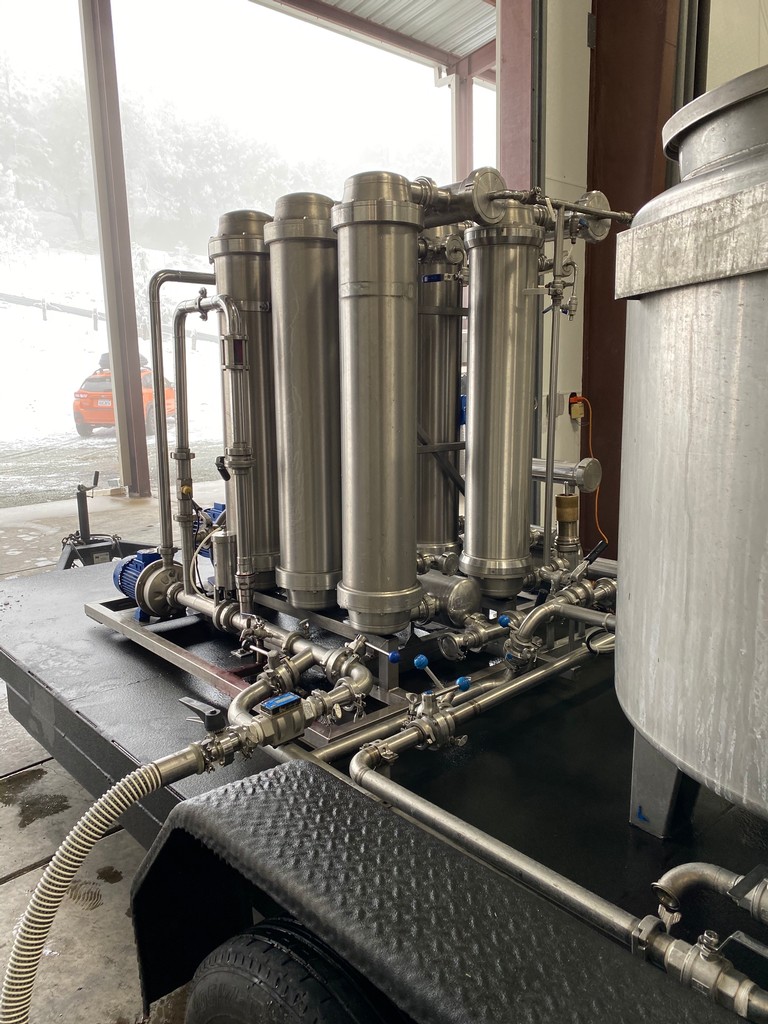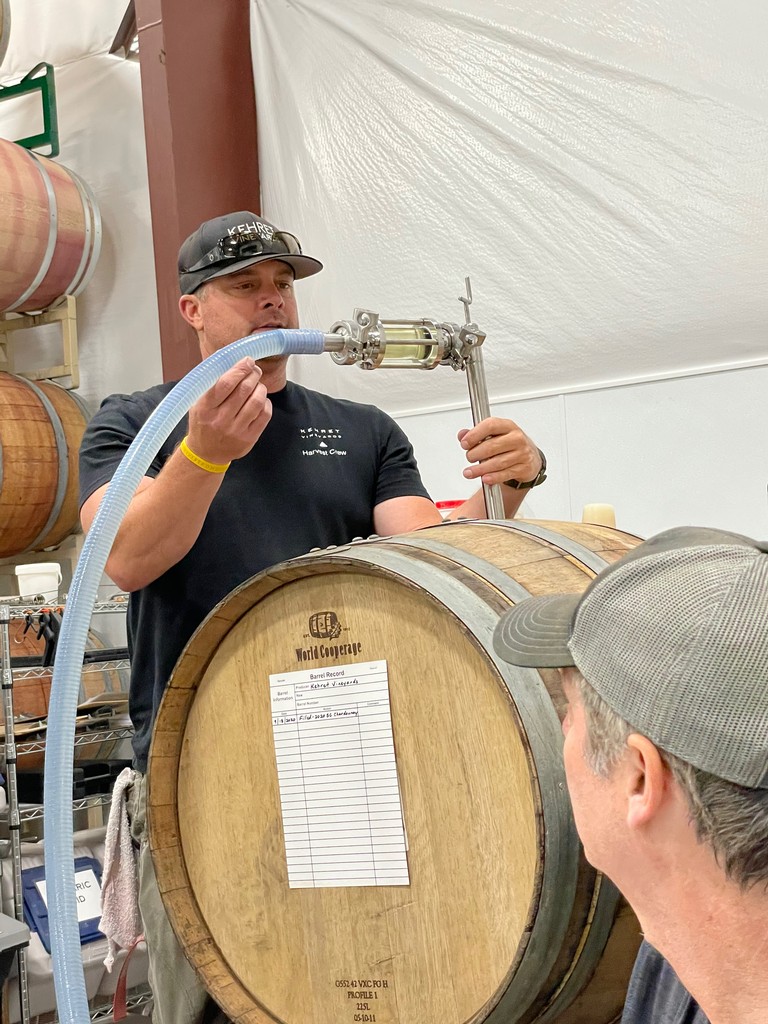The Case for Unfiltered Wine
I'd like to tackle an age-old question, and one of the more contentious topics in winemaking circles: is it better to filter a wine or not?
Let’s Start With the Science
The basic concept of filtration is pushing wine through a material, usually a membrane with microscopic openings (pores). The portion of wine which is smaller than the membrane’s pores pass through the membrane as permeate; what is retained is retentate. The larger particles include such things as yeast, bacteria, lees, and large particulates, which can create microbiological spoilage (example: yeast can ferment residual sugar in the wine and create off flavors, aromas and effervescence), or they can create a hazy wine. The smaller portion includes water, alcohol, organic acids, polysaccharides, etc. More often than not, wine is sterile filtered just prior to bottling whereby a wine is forced to pass through microscopic pores.
Proponents of filtration believe the removed particles are flaws or pose a risk, or both. Another belief is that the physical process of filtration does not damage the wine. I have differing beliefs. While it’s true that bacteria and yeast can pose a threat, that is only true if proper care and risk assessment were neglected in the winemaking process. Unfiltered wines will not be crystal clear, but will have a haze. This is a cosmetic issue, not a quality concern. I have done many trials evaluating filtered versus unfiltered wine and tracked them in blind tastings over the years, and it is clear (no pun intended!) that filtration demonstrably affects wine quality. Filtration strips wine of flavor, aroma, texture, and limits a wine’s ability to express its vineyard personality, or terroir as the French call it.

A mobile cross flow filteration system - a modern marvel of engineering
But Wait, There’s More!
While the process of filtration is untenable to me as a lover of wine, my real motivation to bottle without filtration is that it necessitates diligent winemaking throughout the entire process, from vineyard to bottle. So many benefits are afforded to those who aspire to bottle wine without filtration. Here are just a few:
- Promotes harvesting only perfectly ripened grapes. If unfiltered is the goal, you cannot have grapes with disease, defects or contamination, nor can you pick overly ripe grapes, as all of these will create undue risk to unfiltered wines.
- Prevents sweet wines. Other than dessert wines, I loathe tasting wines marinating in sugar. Having residual sugar in wine is likely due to issues in winemaking, or done by design to mask flaws or appeal to the less discerning palate. Any sugar residing in an unfiltered wine is a microbial time bomb!
- Avoids excessive oxygen. Oxygen is to be avoided in winemaking, except at distinct moments when meticulously administered. Excessive oxygen exposure compromises a wine’s freshness, color, flavors, aromas and textures, all the while providing spoilage microbes a boost to their metabolic needs.
- Facilitates gentle handling. In order to bottle without filtration, you must gently and naturally allow for clarification. This is no easy task. For filtered wine, you first move the wine out of barrel using pumps and then you forcefully filter the wine to gain clarity. In order to naturally clarify and bottle without filtration, you need to stage your barrels (or have wine in tank) undisturbed for several months to allow compaction of the lees to gain clarity. Then, you carefully rack your wine off the lees and out of barrel by gravity (siphoning) into an oxygen-protected sump. This takes time, space, patience and a lot of skill – not to mention a significant loss of wine that is suspended in the lees layer at the bottom of each barrel.

Carefully siphoning our 2020 Chardonnay for bottling after months of being undisturbed for impurities to settle
- Promotes a clean cellar. While cellar sanitation rarely finds its way into winery marketing and PR messages, it is paramount in achieving unfiltered status, as a dirty winery is fraught with contaminants. A clean cellar allows for better winemaking practices at every stage and delivers wines with vineyard-derived richness, complexity and freshness.
- Say goodbye to bottle shock! This term is used to describe the period after bottling when a wine closes down due to the harsh process of bottling (read: filtration). It can take many months for a newly bottled wine to recover some of the aromas and flavors lost due to filtration, and they may never again reach the levels they achieved in barrel before filtration. With my decades of experience producing unfiltered wines, they remain open and expressive, just as they were in barrel.
And so many other benefits: proper fermentation management, sound topping wine protocols, lees management, early blending, and on and on…
So, if good fortune brings an unfiltered wine to your table, please excuse the haze and know that a lot of extra care and effort went into its creation so that you can enjoy the best expression the vineyard has to offer!
